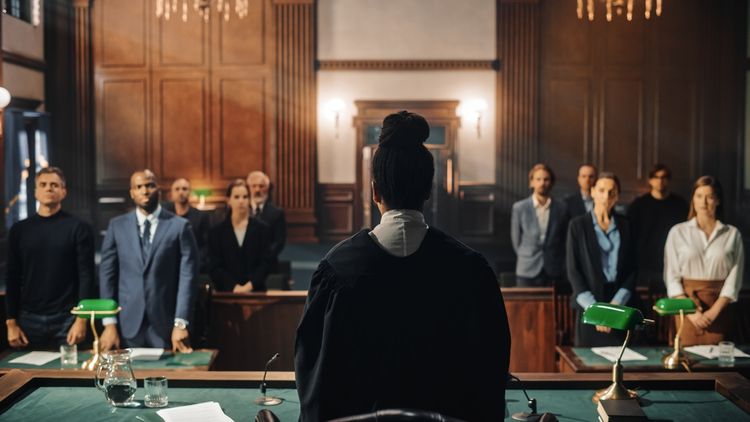Most people perceive the justice system as one monolithic entity that makes sure justice is served whenever a law is broken. But there are two primary types of law: civil and criminal law. While both operate under the same system, each requires a unique set of rules and procedures.
Civil law and criminal law are meant to deter and punish wrongdoing, though they differ in the types of law they enforce, the kind of penalties they impose, the case procedures, and several other ways. When looking for an attorney, it’s wise to find one that has enough experience in the field of law that’s most relevant to you and your case.
So, what are the differences between civil law and criminal law?
Civil Law vs. Criminal Law: Overview
Criminal laws encompass the rules that apply whenever a person commits a crime or offenses against the federal or state government. Once a person has been arrested or charged with crimes such as assault, murder, robbery, rape, and others, the person is taken through the Criminal Court system.
Civil law refers to the rules that apply when a person sues another person or entity (business or agency). This may cover issues such as divorce and custody, eviction and foreclosure, debt, and bankruptcy, or when a person sues for compensation for damages as a result of personal injury. These cases are handled in a Civil court.
Judges in civil and criminal courts have different powers. Judges in criminal courts can punish an offender for breaking the law by sending them to jail. Civil court judges can order a business to pay fines or compensation or order a parent to pay child support.
Who can file a case?
Civil laws can be brought by any party. The individual or entity that feels hurt the most by the outcome usually files the case.
On the other hand, only the government can initiate a criminal case. Criminal cases are usually the responsibility of the state, local, or federal prosecutors, who work together with law enforcement agencies.
Punishment
One major difference between criminal law and civil law is the type of punishment given after being found guilty. For criminal cases, if the accused loses the case, they will likely face incarceration or some form of probation.
In civil cases, the resolution of a case doesn’t result in the defendant going to jail if they lose the case. In most cases, the judge will order them to pay a financial penalty and/or a change in behavior for the damages from a personal injury.
It’s also worth noting that many civil cases are settled out of the courtroom. This often involves the defendant giving the plaintiff a substantial amount in exchange for dropping the suit and admitting fault.
Burden of proof
In both civil and criminal cases, the plaintiff (accuser) has to meet a burden of proof, which is a legal obligation to prove the claims made beyond a certain standard. Criminal cases typically require a higher burden of proof than civil cases. The standard for criminal cases is that the prosecution has to prove their case beyond a reasonable doubt to get a conviction.
In civil cases, the burden of proof is usually based on a balance of probabilities. As such, the plaintiff has to prove that it’s 50% or more likely that their claims are true and that the defendant is liable. This is referred to as the preponderance of evidence standard.
Statute of limitations
The amount of time the prosecutor or plaintiff is allowed to bring a claim or file charges after an incident is different between civil and criminal cases. The statute of limitations is meant to help the defendants from unreasonable demands.
Each type of civil case has its own guidelines for these, but criminal cases, such as murder and certain sex offenses, don’t have a statute of limitations in Georgia or under Federal law. However, each state may have differences in which cases may fall under a statute of limitations.
However, it’s important to note that laws can change, and there may be variations depending on the state. Additionally, specific circumstances and legal details may affect the application of statutes of limitations. It’s crucial to consult the current laws in the relevant jurisdiction or seek legal advice for the most accurate and up-to-date information.
Appealing court rulings
The U.S. Justice system allows the defendants to appeal a court ruling. Both civil and criminal law cases can be appealed at higher courts up to the Supreme Court depending on the circumstances of the case. However, there are significant differences in the appeals process.
In civil cases, either party can appeal the ruling. In criminal cases, only the defendant can appeal the decision. The Fifth Amendment “Double Jeopardy” Clause protects individuals from the threat of a retrial following an acquittal.
Our Atlanta, GA Criminal Lawyers Are Ready to Help
You can trust the team at SHElaw firm® to pursue your case diligently and aggressively, whether you’re dealing with a civil matter or have been accused of a crime. Our team will fight to protect your rights, and make sure you achieve a fair and favorable outcome.
Our Atlanta lawyers have decades of combined trial experience and can work with prosecutors and judges to help you get better outcomes. Call us today at 470-788-8930 for a free case evaluation.









